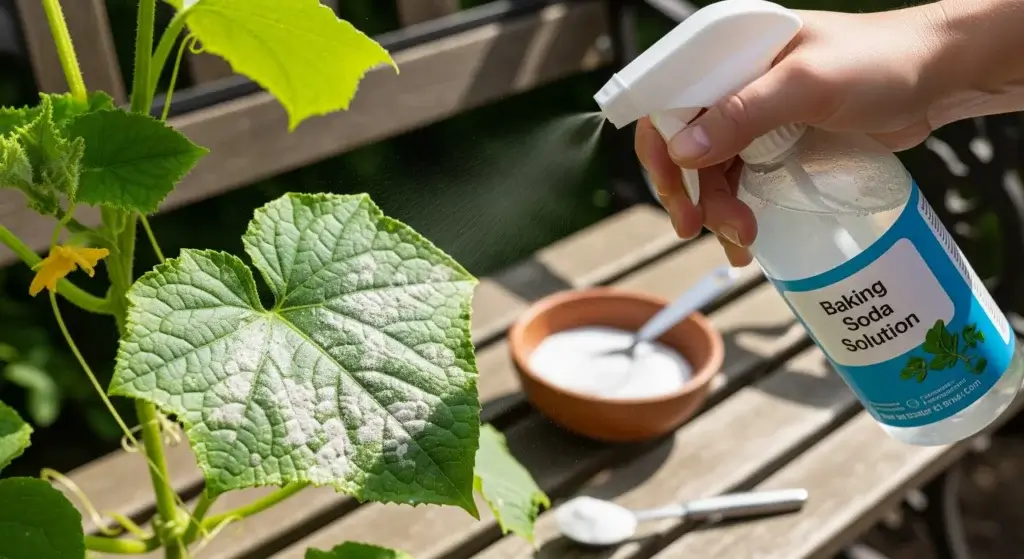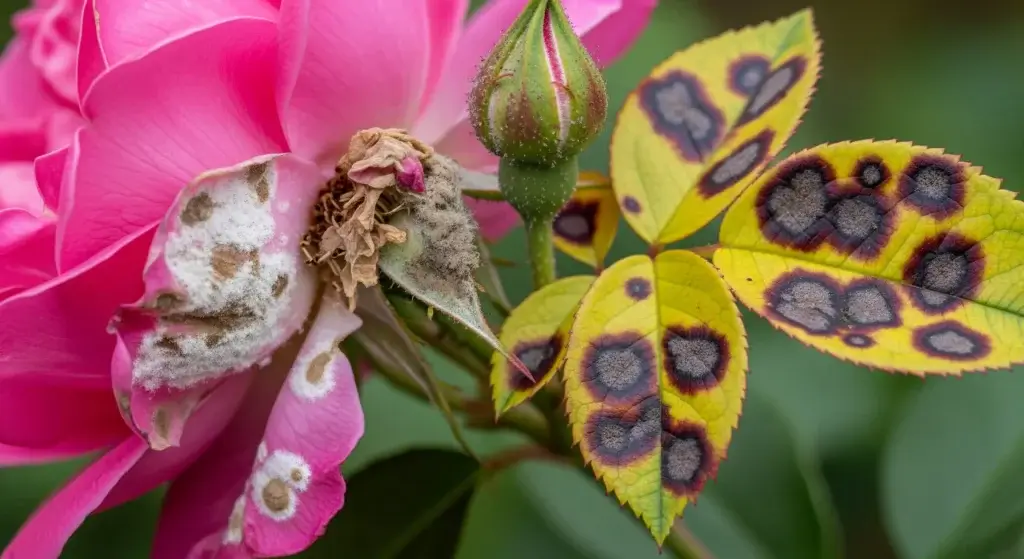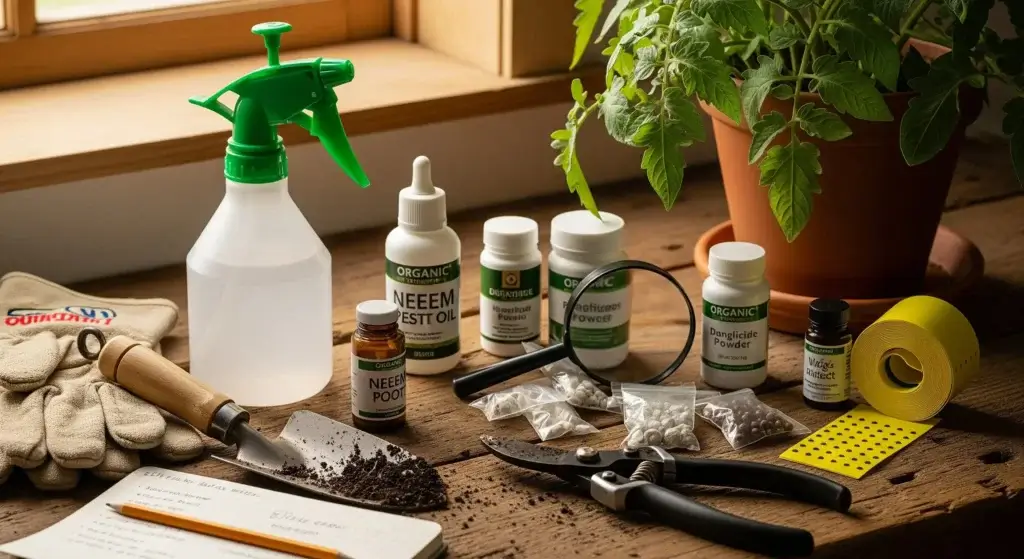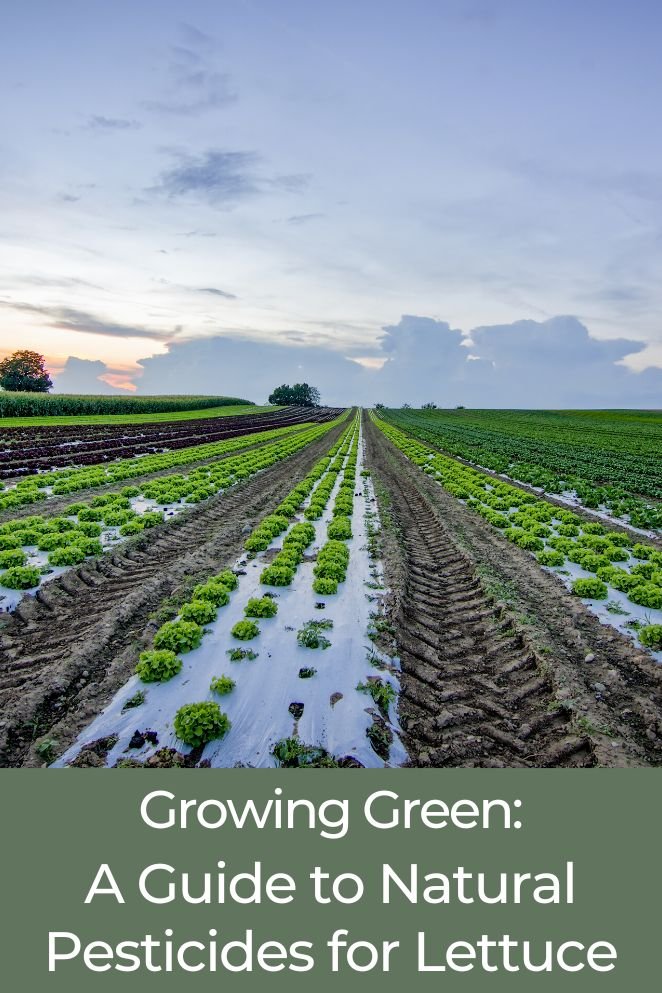
Hello, Fellow Gardeners!
If you’re tending to your lettuce and grappling with pesky pests, fear not.
This detailed guide is here to explore the realm of natural pesticides for lettuce, providing effective solutions to shield your leafy greens without resorting to harsh chemicals.
Let’s cultivate a flourishing lettuce patch while maintaining the delicate balance of nature.
Common Lettuce Pests
Lettuce, with its delicate leaves, can become a tempting feast for various pests.
Before we explore natural remedies, let’s identify some common culprits that may threaten your lettuce patch:
- Read also: A Guide to Natural Pesticides for Tomatoes
- Read also: Natural Pesticide for Avocado Tree
Aphids
These tiny, sap-sucking insects can swiftly infest your lettuce, causing stunted growth and resulting in yellowed leaves.
Recognizing the signs of aphid presence is crucial for timely intervention.
Slugs and snails
The bane of many gardeners, these slimy creatures enjoy a nocturnal feast on lettuce leaves, leaving behind a trail of damage.
Understanding their habits can aid in implementing effective preventive measures.
Caterpillars
The larvae of butterflies and moths can voraciously munch their way through your lettuce, leaving behind unsightly holes.
Identifying and addressing caterpillar infestations is vital for preserving the aesthetics and health of your lettuce plants.
Whiteflies
These small, flying insects pose a threat by sucking plant sap, leading to weakened lettuce plants.
Recognizing the signs of whitefly infestation helps in implementing targeted solutions to safeguard your lettuce patch.
Cutworms
These caterpillars are notorious for cutting through the stems of young lettuce plants, causing them to wilt and eventually perish.
Implementing preventive measures against cutworms is crucial to maintaining the vitality of your lettuce crop.
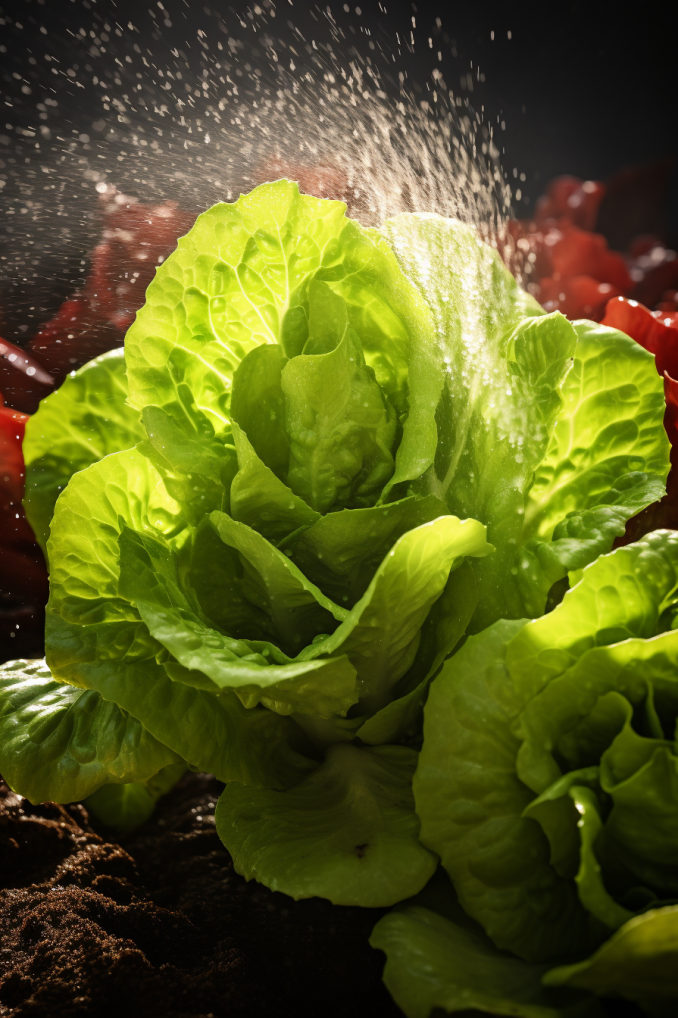
Natural Pesticides for Lettuce
To safeguard your lettuce from common pests, let’s explore eco-friendly solutions that promote a thriving and healthy garden:
Neem oil
Derived from the neem tree, neem oil serves as a potent natural pesticide. To use:
- Dilute neem oil with water.
- Spray the mixture on your lettuce plants, targeting both pests and their eggs.
- Neem oil disrupts the feeding and reproductive cycles of pests, providing effective control.
Diatomaceous Earth
A fine powder made from fossilized algae, diatomaceous earth acts as a mechanical pesticide. Here’s how to use it:
- Sprinkle the powder around your lettuce plants to create a protective barrier.
- This powder dehydrates and kills pests upon contact, providing a non-toxic defense for your lettuce.
Garlic spray
Harness the power of garlic to deter pests with a simple homemade spray:
- Blend garlic cloves with water.
- Strain the mixture and spray it on your lettuce.
- The strong odor of garlic acts as a natural repellent, keeping pests at bay.
Soap spray
Create a gentle yet effective soap spray to combat pests:
- Mix a few drops of mild dish soap with water.
- Spray the solution on your lettuce, targeting pests.
- The soapy residue disrupts the cell membranes of pests, preventing further damage.
Beneficial insects
Leverage the power of nature by inviting beneficial insects to your garden:
- Ladybugs, lacewings, and parasitic wasps are natural predators of pests.
- Plant flowers that attract these beneficial insects to establish a natural balance in your garden.
How to Apply Natural Pesticides
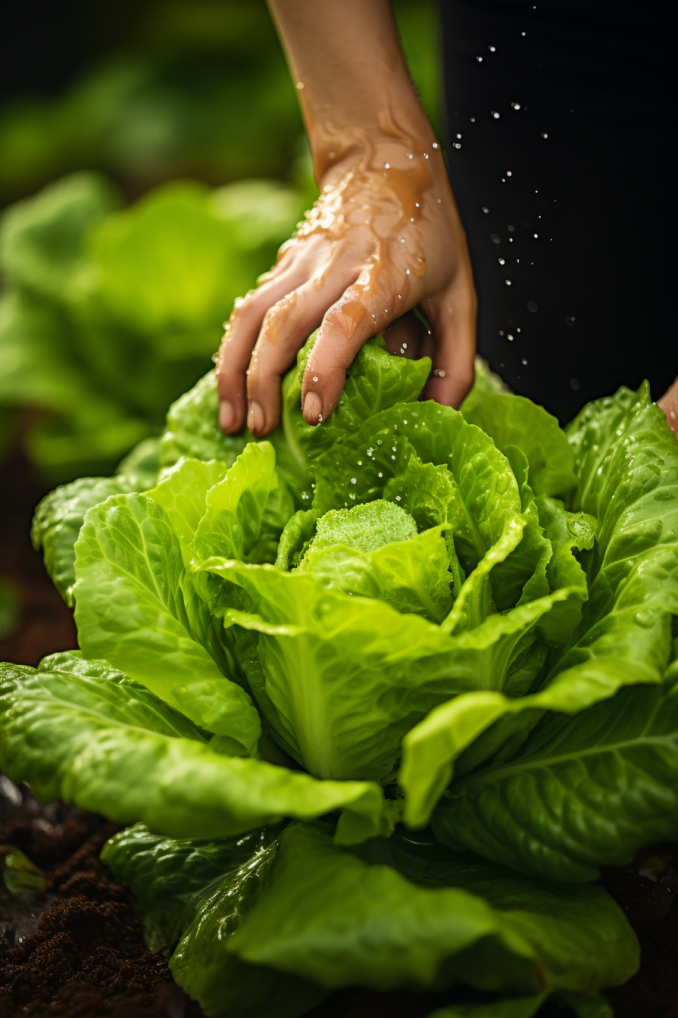
Ensuring the effectiveness of natural pesticides involves proper application. Here’s a step-by-step guide:
Early detection
Regularly inspect your lettuce for any early signs of pest infestation.
Keep a keen eye on the leaves, stems, and even the soil surrounding your plants.
Early detection provides the advantage of addressing the issue promptly, preventing further damage.
Prepare solutions
Gather your chosen natural pesticide and follow the recommended dilution ratios.
Whether it’s neem oil, garlic spray, or a homemade concoction, accurate mixing ensures both effectiveness and plant safety.
Take the time to understand the specific requirements of your chosen solution.
Spray evenly
Armed with your well-prepared pesticide solution, it’s time for application.
Utilize a spray bottle to ensure even and comprehensive coverage on both sides of the lettuce leaves.
Pay extra attention to the undersides of the leaves, as pests often lurk in these hidden areas.
Target the troublemakers
Direct your spray towards areas prone to pest activity.
If you spot clusters of pests or signs of their presence, concentrate the application on these trouble spots.
This targeted approach enhances the pesticide’s efficacy while minimizing its impact on non-infested areas.
Repeat as needed
Natural pesticide application is not a one-time affair. Consistency is paramount for success.
Schedule follow-up applications every 7-14 days, depending on the severity of the pest issue and environmental factors.
Pay extra attention after rainfall, as it may wash away the pesticide, necessitating reapplication.
Monitor and adjust
Stay vigilant even after application. Monitor your lettuce for any changes in pest activity or plant health.
If needed, adjust your application frequency or switch to a different natural pesticide to adapt to evolving pest challenges.
Preventing Pests
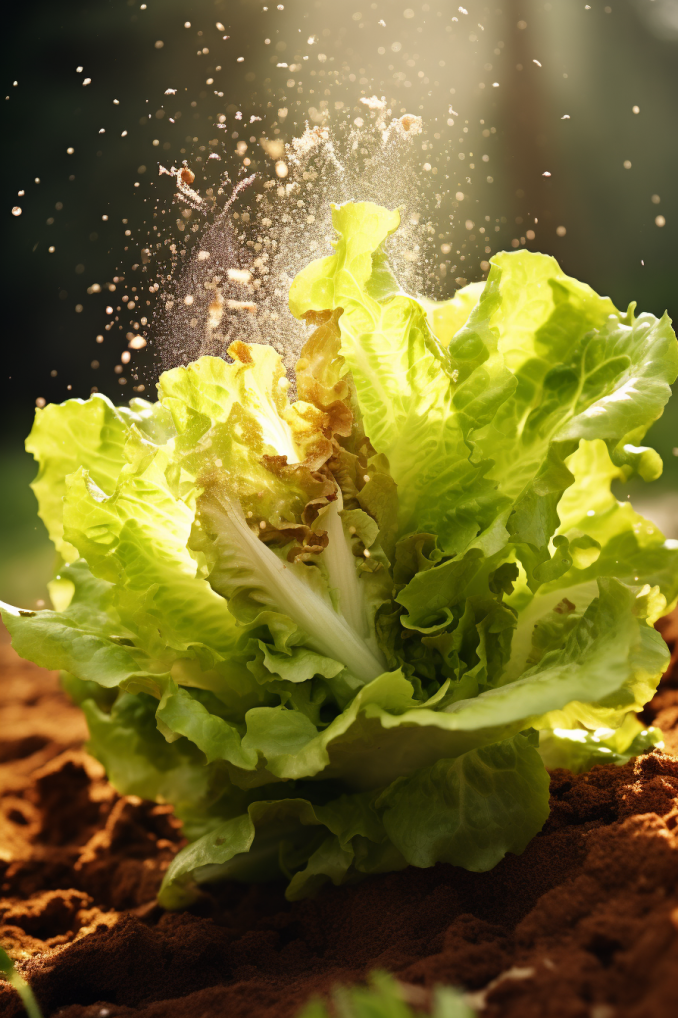
An ounce of prevention is worth a pound of cure. Consider these preventive measures to keep pests at bay:
Companion planting
Companion planting involves strategically growing certain plants alongside your lettuce to ward off pests.
Consider introducing marigolds, basil, or mint, known for their natural pest-repelling properties.
Marigolds, for instance, emit a scent that deters pests, while basil and mint can attract beneficial insects that act as natural predators.
- Marigolds: Known for their pest-repelling properties, marigolds emit a scent that deters many pests, acting as a natural barrier for your lettuce.
- Basil and mint: Planting basil or mint around your lettuce not only adds flavor but can also attract beneficial insects like predatory wasps and spiders, creating a natural balance in your garden.
Crop rotation
Rotate your lettuce crops annually to disrupt the life cycles of pests.
Pests often adapt to specific environments, and crop rotation prevents them from establishing a permanent residence.
By changing the location of your lettuce beds each season, you make it challenging for pests to locate and target your plants consistently.
Healthy soil
Nutrient-rich soil is the cornerstone of a thriving and pest-resistant lettuce garden.
Healthy plants are naturally more resilient to pest attacks.
Ensure your soil is well-amended with organic matter, providing essential nutrients that promote robust growth.
Regularly check soil pH and nutrient levels to maintain optimal conditions for your lettuce.
- Organic matter: Incorporate compost or well-rotted manure into your soil to enhance its structure and fertility.
- pH balance: Test your soil’s pH regularly and make adjustments as needed. Most lettuce varieties prefer slightly acidic to neutral soil conditions.
Conclusion
By embracing the use of natural pesticides and implementing preventive measures, you pave the way for a thriving lettuce patch without resorting to the harsh intervention of synthetic chemicals.
Let’s foster a garden where lettuce leaves can flourish, and pests are kept at a respectful distance.
In opting for natural solutions, you contribute to a harmonious and sustainable gardening approach.
This not only protects your lettuce from potential harm but also promotes a balanced ecosystem within your garden.
Embrace the beauty of a lettuce patch that thrives naturally, reflecting your commitment to both plant health and environmental well-being.
Continue to monitor your lettuce, apply natural pesticides as needed, and revel in the satisfaction of cultivating a garden that coexists peacefully with nature.
Through your conscious efforts, you create a space where lettuce can flourish, and the delicate balance of the garden ecosystem is maintained.
Here’s to a vibrant and pest-resistant lettuce patch that embodies the beauty of natural gardening practices.
- Read also: Natural Pesticide for Roses
- Read also: Natural Pesticide for Herbs
FAQs
Absolutely! Many natural pesticides are versatile and effective for a variety of vegetables.
Yes, these natural pesticides align with organic gardening practices, ensuring your lettuce remains free from harmful chemicals.
Results may vary, but with consistent application, you should observe improvements within a few weeks as the pests are deterred or eliminated.

